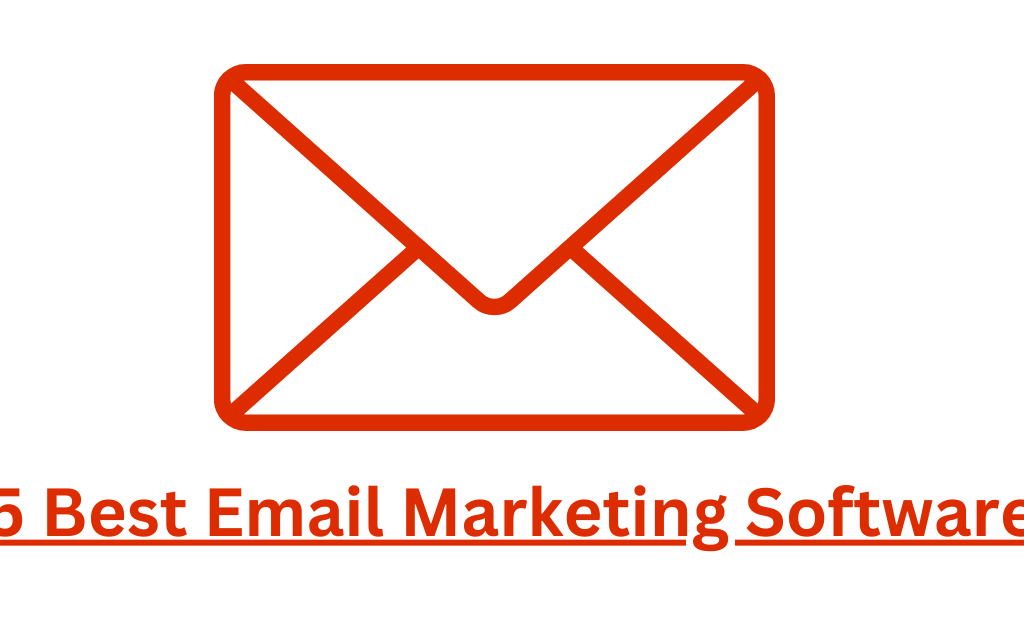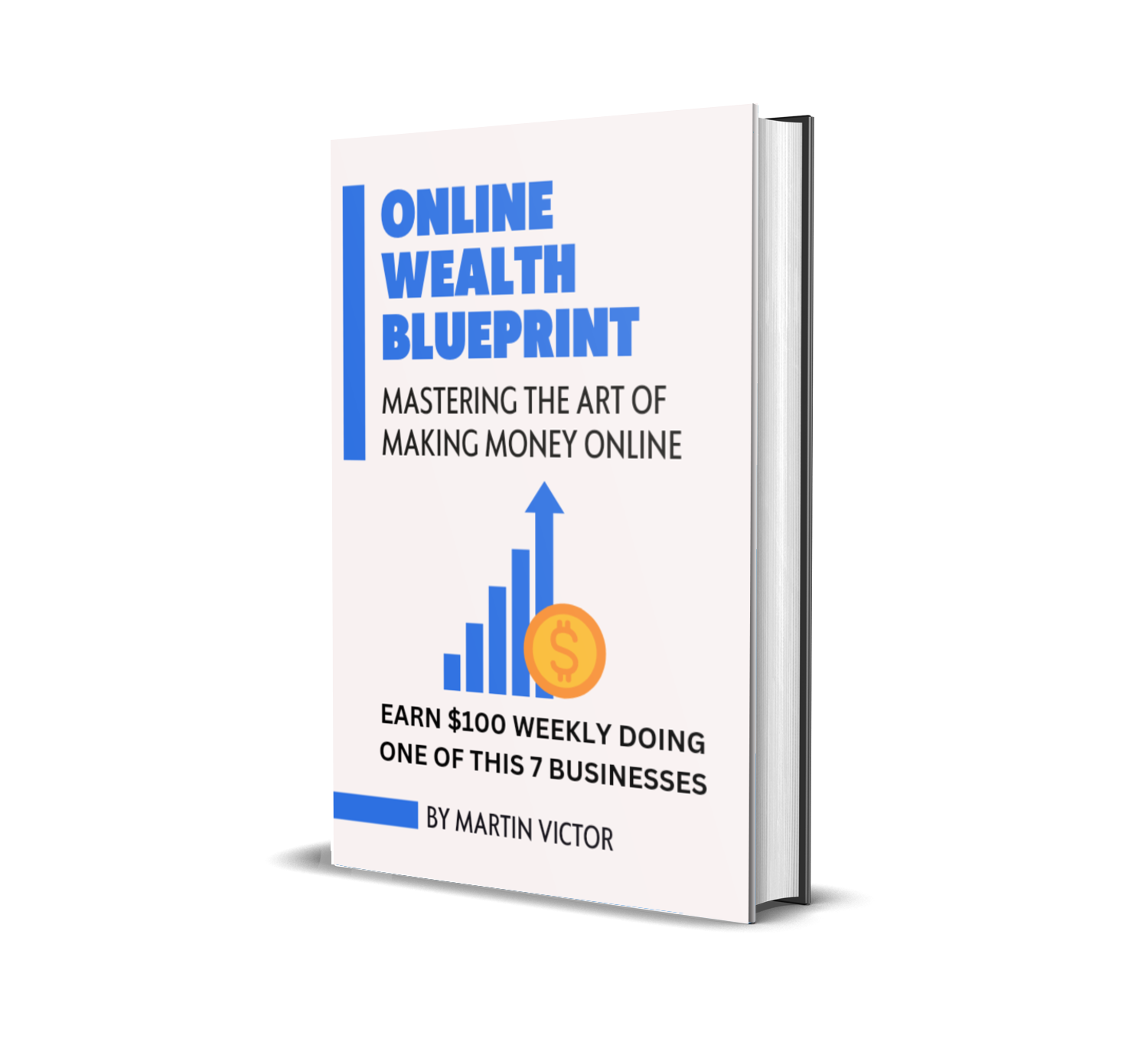Today, email marketing remains one of the most effective strategies for businesses to connect with their audience, build relationships, and drive sales.
Whether you’re a small business owner, an experienced marketer, or a startup entrepreneur, having the right email marketing software can transform your campaigns into powerful revenue-generating assets.
But with so many tools available, how do you choose the best one for your business? This article explores the five best email marketing software on the market, detailing their features, pricing, pros, and cons, to help you make an informed decision.

1. Mailchimp: The All-in-One Marketing Powerhouse
Mailchimp is one of the most popular email marketing software, and it is loved for its user-friendly interface and robust features. It’s an excellent choice for businesses of all sizes, especially small to medium-sized enterprises (SMEs).
Key Features
- Pre-built Templates: Choose from hundreds of visually appealing email templates.
- Drag-and-Drop Editor: Easy customization for emails without coding skills.
- Marketing Automation: Automate customer journeys, abandoned cart emails, and more.
- Analytics and Insights: Track open rates, click-throughs, and campaign performance.
- Integration Options: Integrates with platforms like Shopify, WordPress, and Salesforce.
Pros
- The intuitive interface is ideal for beginners.
- Free plan available with up to 500 subscribers.
- Advanced audience segmentation and personalization tools.
Cons
- The free plan has limited features.
- Pricing can become expensive as your contact list grows.
Pricing
- Free Plan: Up to 500 subscribers.
- Paid Plans: Start at $13/month.
Best For: Small businesses and beginners looking for a straightforward platform with automation capabilities.
2. ActiveCampaign: Advanced Automation for Growing Businesses
ActiveCampaign is one of the most powerful email marketing software tools, thanks to its advanced automation features and CRM integration.
Key Features
- Dynamic Automation: Automate customer journeys with complex workflows.
- Lead Scoring: Prioritize leads based on their engagement with your emails.
- Built-in CRM: Manage customer relationships directly within the platform.
- Segmentation: Highly detailed segmentation for personalized email campaigns.
- E-commerce Integration: Works seamlessly with Shopify, WooCommerce, and more.
Pros
- Exceptional automation and segmentation capabilities.
- Comprehensive reporting tools for campaign insights.
- Excellent support for businesses looking to scale.
Cons
- The steeper learning curve for beginners.
- Pricing is higher compared to basic tools.
Pricing
- Starts at $29/month (billed annually).
Best For: Medium to large businesses that need robust automation and CRM integration.
3. Constant Contact: Reliable and Easy to Use
Constant Contact is a trusted name in email marketing, known for its simplicity and excellent customer support. It’s an ideal platform for small businesses, nonprofits, and event planners.
Key Features
- Event Management: Create and promote events directly through the platform.
- List-Building Tools: Grow your subscriber base with pop-ups and signup forms.
- Social Media Integration: Share your campaigns directly on social media platforms.
- Email Scheduling: Plan and schedule emails for optimal delivery times.
- Analytics Dashboard: Monitor performance metrics such as open rates and click-through rates.
Pros
- Extremely beginner-friendly.
- 24/7 customer support via chat, phone, and email.
- Free trial for new users.
Cons
- Limited advanced automation compared to competitors.
- Fewer customization options for templates.
Pricing
- Starts at $12/month for up to 500 subscribers.
Best For: Small businesses and beginners seeking a reliable, easy-to-use platform.
4. HubSpot: A Complete Marketing Suite
HubSpot’s email marketing software is part of its all-in-one marketing suite, making it a favorite for businesses looking to centralize their marketing efforts.
Key Features
- Drag-and-Drop Editor: Create professional-looking emails with ease.
- CRM Integration: Sync email campaigns with HubSpot’s CRM for better insights.
- Lead Nurturing: Automate and track customer journeys from start to finish.
- Comprehensive Analytics: Gain deep insights into campaign performance.
- All-in-One Solution: Access additional tools for social media, blogging, and more.
Pros
- Seamlessly integrates with HubSpot’s full marketing suite.
- Free plan includes powerful features for small businesses.
- Scales easily as your business grows.
Cons
- Can be expensive for premium features.
- Overwhelming for users who only need email marketing.
Pricing
- Free Plan: Includes up to 2,000 email sends/month.
- Paid Plans: Start at $50/month.
Best For: Businesses looking for an all-in-one marketing and CRM solution.
5. Sendinblue: Affordable and Feature-Rich
Sendinblue is an affordable email marketing solution that doesn’t compromise on features. It’s perfect for startups, small businesses, and budget-conscious marketers.
Key Features
- Transactional Emails: Send order confirmations, invoices, and more.
- SMS Marketing: Combine email campaigns with SMS for multi-channel engagement.
- Advanced Segmentation: Tailor campaigns for specific audience segments.
- Real-Time Analytics: Monitor campaign performance instantly.
- Marketing Automation: Automate workflows, from welcome emails to abandoned cart reminders.
Pros
- Generous free plan with up to 300 emails/day.
- Affordable pricing for premium plans.
- Multi-channel marketing capabilities.
Cons
- Limited template library compared to competitors.
- The interface can feel slightly dated.
Pricing
- Free Plan: Includes up to 300 emails/day.
- Paid Plans: Start at $25/month.
Best For: Budget-conscious businesses and those seeking multi-channel marketing.
FAQs
1. What is the best email marketing software for beginners?
Mailchimp and Constant Contact are great options for beginners, thanks to their intuitive interfaces and robust customer support.
2. Which email marketing platform offers the most advanced automation?
ActiveCampaign excels in advanced automation, making it ideal for businesses that want to create complex workflows.
3. Can I use free email marketing software for my business?
Yes, many platforms like Mailchimp and Sendinblue offer free plans with basic features, making them suitable for startups and small businesses.
4. Which platform is best for e-commerce businesses?
ActiveCampaign and Sendinblue are excellent for e-commerce, offering features like transactional emails and seamless integration with platforms like Shopify and WooCommerce.
5. How do I choose the right email marketing software?
Consider factors like your budget, the size of your email list, required features (e.g., automation, segmentation), and integrations with other tools.
Conclusion
Choosing the right email marketing software is a crucial step in driving effective communication and engagement with your audience. Each platform discussed here—Mailchimp, ActiveCampaign, Constant Contact, HubSpot, and Sendinblue—has its strengths and caters to different business needs.
For beginners, Mailchimp and Constant Contact are excellent starting points. Businesses seeking advanced automation will benefit from ActiveCampaign, while HubSpot offers an all-in-one solution. Finally, for those on a budget, Sendinblue delivers exceptional value.
Evaluate your business requirements and goals before making a decision. With the right tool, your email marketing efforts will not only reach more people but also leave a lasting impact.


